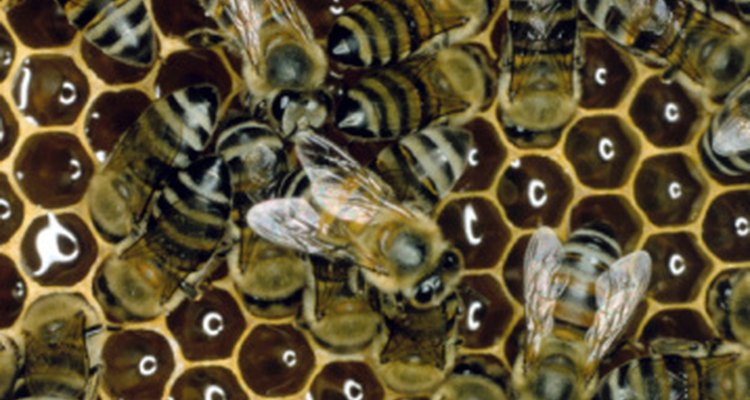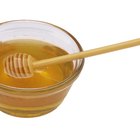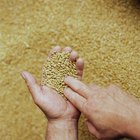
Honey was the original sweetener, known and consumed by our ancestors since time immemorial. It is suitable for immediate consumption in its unprocessed state, unlike any other major sweetener, requiring only the skill or foolhardiness to steal it from the bees. In its pure state honey will not ferment, but fermentation can occur by accident or be deliberately induced.
Pure Honey
In its pure state, honey is a highly concentrated sugar containing very little water. This makes it one of the very few foods that is naturally resistant to spoilage, because yeasts and other microorganisms require a degree of free water in order to thrive and reproduce. This characteristic was well known in ancient times, and the use of honey to dress wounds is mentioned in the Bible. When stored carefully, honey will darken and crystallize but will not ferment.
Unintentional Fermentation
Honey ferments and spoils under certain circumstances. If the honey is harvested too early when its moisture content is high, or if it isn't stored airtight and absorbs moisture from the atmosphere, it can ferment. When this happens the yeast spores in the honey wake from their dormant state and begin digesting the sugars, processing them into alcohol. The honey will foam visibly and develop unpleasantly sour flavors. At this point the honey is considered unfit for human consumption and most beekeepers feed it back to the bees.
Deliberate Fermentation
Fermentation, of course, is how humans produce alcoholic beverages -- and fermented honey may be one of the oldest of all. To ferment honey deliberately, it is dissolved into water with yeast added. Over time the wine will ferment like wine or beer, producing a tart honey wine called mead. Mead was deeply ingrained in ancient Celtic and Nordic cultures, and our term "honeymoon" refers to a month when the newlyweds were largely left alone to drink mead and get to know each other.
Types of Mead
Mead is produced in a great variety of styles, reflecting its diverse ancestry. There is an entire vocabulary relating to the different varieties of mead. A mead with apples added during fermentation is a cyser, one with grapes is a pyment and one with any other fruit added is a melomel. A mead with spices added is metheglin, and one with rose petals is a rhodomel. A quickly fermented ale-like mead is a short mead, while one intended for long-term storage is a great mead. The mead equivalent of dessert wine is called a sack mead.
Related Articles

Does Yeast Turn Juice to Alcohol?
How Long Can Honey Last Without Going ...

What Liquors Are Made From Sugar Cane?

What Type of Sugar Is in Fruit?

What Causes Honey to Crystalize

How to Liquify Honey

What Is the Primary Difference Between ...

What Is Agave Cactus Juice?

How to Ferment Grains
How to Soften Crystalized Molasses

The History of Royal Crown Cola

Difference Between Clover & Orange ...

Taste Differences in Single-Malt vs. ...

What Is Agave Syrup?

What Are the Functions of Pectin in ...

How to Glaze a Fruitcake

Can You Proof Yeast in Warm Milk?

List of the Different Types of Champagne

How to Mix Liquor With Fresh Fruit & ...

Tanqueray Gin Ingredients
References
- "On Food and Cooking: The Science and Lore of the Kitchen"; Harold S. McGee; 2004
- West Mountain Apiary: Honey
- Food Safety Site; What Causes Honey to Foam During Storage?; Angela M. Fraser, Ph.D.; August 2004
Writer Bio
Fred Decker is a trained chef and prolific freelance writer. In previous careers, he sold insurance and mutual funds, and was a longtime retailer. He was educated at Memorial University of Newfoundland and the Northern Alberta Institute of Technology. His articles have appeared on numerous home and garden sites including GoneOutdoors, TheNest and eHow.
Photo Credits
Ablestock.com/AbleStock.com/Getty Images